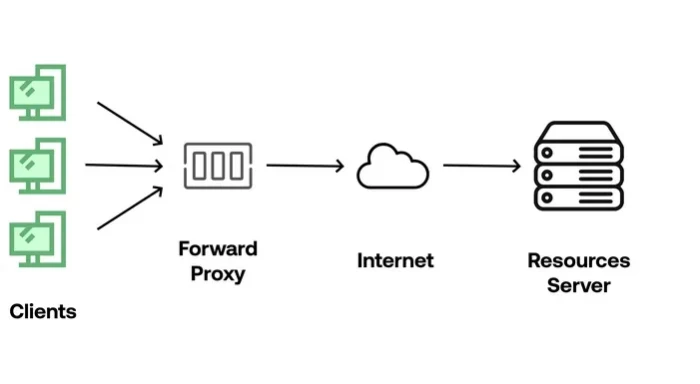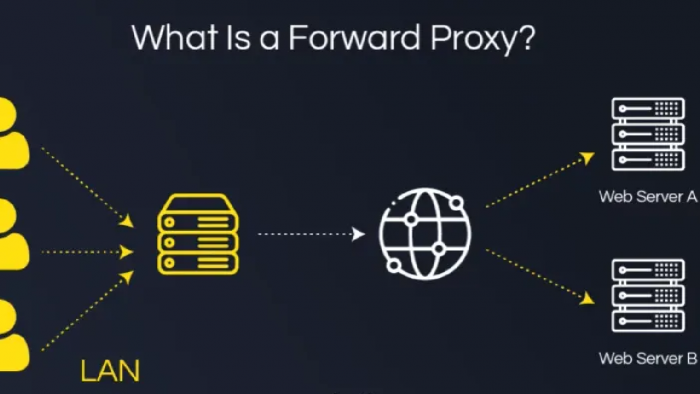Table of Content
Understanding the role of a forward proxy is much like looking at a translator who speaks on your behalf in a foreign country. Instead of you directly interacting with every person, the translator takes your message, communicates it, and brings the response back to you. This intermediary protects your identity, manages your interactions, and sometimes even enhances how smoothly the conversation goes. In the world of networking, that “translator” is known as a forward proxy.
Defining a Forward Proxy

A forward proxy is a server that sits between a client (like your computer or phone) and the internet. When you request access to a website, the request doesn’t go directly to the target server. Instead, it is first sent to the proxy server. The proxy then forwards the request to the internet and retrieves the data back for you. This process allows the forward proxy to act as a gatekeeper, managing what information flows in and out, while also shielding your original identity.
Think of it as a receptionist in a large company. When visitors arrive, they don’t walk straight into the manager’s office. They first meet the receptionist, who verifies them, logs the visit, and then forwards them to the right person. The forward proxy does the same job in the digital landscape.
Why Forward Proxies Are Important
Forward proxies are not just technical jargon – they serve real, everyday purposes. They can improve security, protect privacy, and optimize network performance. For businesses, they provide a controlled environment where employees’ internet activity can be monitored or filtered. For individuals, they offer anonymity, ensuring that the websites they visit don’t directly see their real IP address.
A forward proxy can also act as a filter against malicious sites or unwanted content. It’s like having a safety inspector who checks packages before they reach your doorstep, making sure harmful items don’t get through. This adds a protective layer to online activities, which is particularly crucial in today’s era of cyber threats.
Key Benefits of Using a Forward Proxy
Forward proxies bring several advantages that make them useful in both corporate and personal environments:
- Privacy Protection – They hide your original IP address, keeping your identity more secure.
- Content Filtering – Organizations can block access to specific sites or applications.
- Improved Performance – Cached data can reduce load times when accessing frequently visited resources.
- Access Control – Businesses can manage employee internet usage and ensure compliance with policies.
- Security Enhancement – They act as a barrier, reducing exposure to external threats.
With these features, a forward proxy is like a digital multitool – compact, versatile, and valuable in multiple scenarios.
Forward Proxy vs Other Proxy Types
To better understand a forward proxy, it helps to compare it with other types of proxies. While they may sound similar, each plays a distinct role.
| Proxy Type | Position in Network | Main Purpose | Example Use Case |
| Forward Proxy | Between client and the internet | Privacy, filtering, access control | Business restricting employee access |
| Reverse Proxy | Between internet and a server | Load balancing, protection, caching | Protecting web servers from overload |
| Transparent Proxy | Hidden from the client | Monitoring or filtering traffic | Schools filtering student browsing |
This comparison highlights that forward proxies focus on managing client requests, while reverse proxies deal more with managing traffic directed at servers.
Practical Uses of Forward Proxies
The utility of forward proxies stretches far and wide. For individuals, they can be an essential tool for maintaining online anonymity. For businesses, they provide centralized control over digital activity. Here are some practical applications:
Corporate Security – Limiting employee access to potentially harmful or distracting sites.
Market Research – Gathering data while masking the source identity.
Education Environments – Filtering inappropriate content to maintain safe browsing for students.
Performance Boosting – Storing copies of frequently visited resources to save bandwidth.
Each use case reflects how forward proxies contribute not just to security, but also to efficiency and compliance.
Choosing the Right Forward Proxy Service
Selecting a reliable forward proxy service is crucial because not all options are equal. Free services might appear attractive, but they often come with risks like slow performance, poor support, or even compromised security. Professional providers, on the other hand, ensure that speed, reliability, and safety are not sacrificed.
If you are considering adopting a forward proxy for your needs, explore reputable providers that specialize in offering scalable and secure solutions. For example, you can review available options on this website to find services tailored to both business and personal use.
Final Thoughts
A forward proxy is far more than a technical add-on – it is a strategic tool for enhancing privacy, boosting performance, and strengthening digital security. Whether used by an individual seeking anonymity or by a corporation enforcing internet policies, the forward proxy’s role is becoming increasingly valuable. Just like a trusted intermediary in real life, it bridges the gap, manages communication, and ensures safer and more efficient interactions online.
By understanding what a forward proxy is and how it works, you empower yourself to make smarter choices in today’s digital environment.


